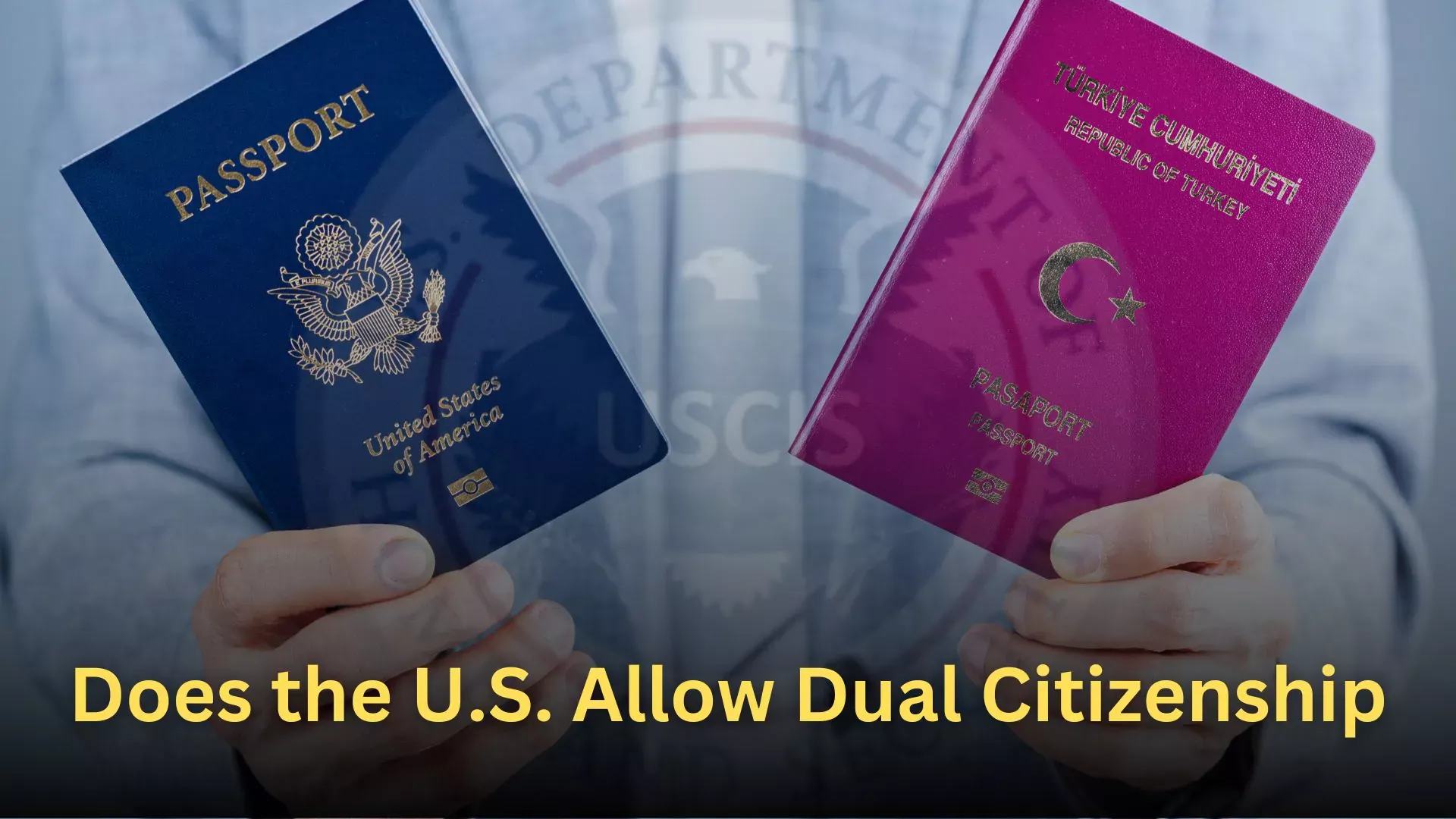Dual citizenship means a person can be a citizen of two countries simultaneously. Some countries like India and Austria are examples that don’t allow dual citizenship.
If you want to become a citizen of one of these countries, you might have to give up your other country’s citizenship.
However, the United States does allow dual citizenship. That means if you’re American and become a citizen of another country, you usually don’t lose your American citizenship.
Here’s a breakdown of what Dual Citizenship means for the U.S.:
Legal Basis
The U.S. has no law that says “dual citizenship is okay.” But, no law also says you can’t be a U.S. citizen or another country’s citizen. Courts have basically said it’s all right to have both.
One principle comes from the idea called “jus soli,” which means “right of the soil.” This principle says that if you’re born in the United States, no matter where your parents are from, you become a U.S. citizen automatically.
So, even if your parents are citizens of another country if you’re born in the U.S., you’re still a U.S. citizen.
Another principle is “jus sanguinis,” which means “right of blood.” This principle says you can become a U.S. citizen if your parents are U.S. citizens, no matter where you were born.
So, even if you were born outside of the United States, if your parents are U.S. citizens, you might still be able to become a U.S. citizen.
Acquiring Dual Citizenship
In the United States, acquiring dual citizenship typically occurs in one of the following ways:
- Birth: Individuals born in the United States to foreign parents may acquire citizenship in both the U.S. and their parent’s home country.
- Naturalization: Foreign nationals who become naturalized citizens of the United States may keep their original citizenship, depending on the laws of their home country.
- Marriage: Marriage to a foreign national does not automatically grant the spouse U.S. citizenship. However, the foreign spouse may become eligible for U.S. citizenship through naturalization while retaining citizenship in their home country.
- Descent: U.S. citizens with children abroad may pass on their citizenship to their children, allowing them to hold two citizenship.
- Special Circumstances: Certain situations, such as international adoption or citizenship law changes, may also result in dual citizenship.
What Rights Dual Citizenship Holders Have
Dual citizens get benefits and citizenship privileges in both countries. They have the right to live, work, and study in either country and to travel freely between them.
Additionally, they may be entitled to access social services, such as healthcare and education, in both countries.
However, dual citizens are also subject to the laws and obligations of each country. This includes paying taxes, serving in the military (if applicable), and obeying the laws of both countries.
In some cases, dual citizenship may also affect eligibility for government benefits or participation in certain activities, such as voting or holding public office.
Renunciation and Loss of Citizenship
While the United States generally permits dual citizenship, there are circumstances under which an individual may lose their U.S. citizenship.
This typically occurs if a person voluntarily renounces their U.S. citizenship or takes actions that show a clear intent to lose their citizenship, such as serving in the military of another country or formally renouncing their allegiance to the United States.
Additionally, acquiring citizenship in another country through naturalization may result in the automatic loss of U.S. citizenship if the individual takes an oath of allegiance to a foreign state with the intention of relinquishing their U.S. citizenship.
Conclusion
Dual citizenship is a complex legal concept allowing individuals to hold citizenship in two countries simultaneously.
While the United States generally recognizes and permits dual citizenship, there are significant legal considerations and potential consequences.
Individuals interested in acquiring dual citizenship should carefully research the laws of both countries involved and seek guidance from legal experts to ensure compliance with relevant regulations.
In an increasingly globalized world, dual citizenship allows individuals to maintain ties to their heritage while enjoying the benefits of U.S. citizenship.
Understanding dual citizenship’s rights, obligations, and potential pitfalls can help individuals make informed decisions about their legal status and citizenship affiliations.
Here are some resources from the U.S. government on dual citizenship:
